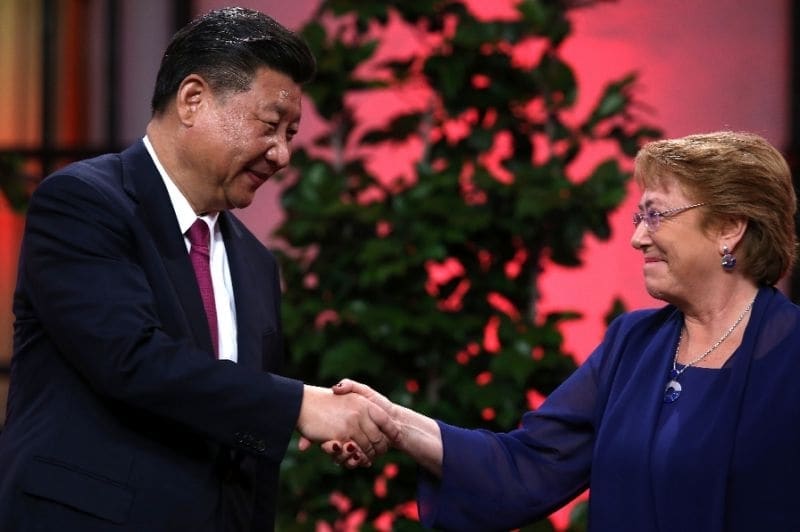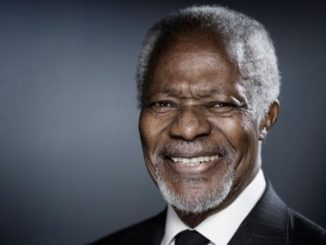
International relations never calm. The geopolitical state-system, the economic capitalist one, and the ecosystem, each incomprehensibly complex by itself, constantly create friction. Thus international politics can’t just look from the inside out, but must also consider the outside in.
The arguably most successful framework to smooth international friction was Pax Americana. But its epicentre, the White House, the German Frankfurter Allgemeine Zeitung acidly but aptly commented, now resembles a ‘dive bar,’ with a leader who gives ‘degenerate and antisocial’ speeches. No wonder former adherents to Pax Americana aim to strengthen their own game.
The EU will succeed if the Franco-German bond holds. France must reassure EU members who worry that a ‘German Question Reloaded’ emerges catastrophe yet again. The French military’s punch initially also defuses German megalomania, which will likely blossom amidst military buildup. To sustain EU military capacity, and hence, geopolitical verve, Germany must focus on economic matters and put its soft power, i.e., stereotypes like efficiency, tolerance, and stability, to the service of Europe, so prosperity and democracy may thrive—after the Greek tragedy has been thoroughly processed.
The UK seems headed for disaster. Theresa May, heading an awfully shallow pack of so-called leaders, overestimated Donald Trump, leaving the special relationship to the whims of a thin-skinned bully. Worse, Brexit may accelerate the boiling tensions in Northern Ireland, adding to the economic disaster.
In Latin America, Venezuela represents the hottest flashpoint, suffering famine and tumbling into civil war. Brazil, once globally admired, is imploding under anarchical violence that’s spilling out of its prisons and across borders; its democracy hijacked by dictatorship melancholists, some of whom, will sink in the Odebrecht morass, together with other regional big shots. In Argentina, President Mauricio Macri’s reforms are failing too. But blaming his predecessor, Cristina Kirchner, will not work once the looming food crisis hits as businesses keep failing, whereas finance vultures got comfy again.
Amidst such prospects, countries like Chile understandably look to China. President Xi Jinping repeatedly committed to free trade, which chimes well with Chile’s mercantilist foreign policy. Strengthening Chinese relations has also an emancipatory aspect for Chilean leaders as it proves the country’s autonomy, turning it also into an attractive regional broker. This shouldn’t be underestimated. Autonomy School-thinking, roughly, perceives the world hierarchically ordered, with Latin America occupying a lower position. Doing business abroad , thus, equals to successfully managing foreign affairs.
Success, in this sense, lives in the gap between accepting global rules while cutting one’s own deals. Hence, Chile’s general ignorance toward dictatorships that promise business. Yet, in the case of China, this arrangement will change Chile more than China, with potentially greater impact than the US alliance, not least because Washington’s influence won’t disappear, while China’s will rise.
Beijing’s influence surfaced subtly but clearly in recent weeks. A shameful example was on display when Chinese Nobel Peace laureate Liu Xiaobo died of cancer. The politburo had locked him away on similar charges Chilean politicians denounce in Venezuela. Moreover, the politburo turned Mr Liu’s wife, Liu Xia, who’s not accused of anything, into a prisoner in her own home and reportedly subjected her to psychological terror. Mr Lui’s death appeared only as passing note in Chile’s media, but at least it did. The government, operating its foreign policy on the principle of human rights proliferation, kept quiet while watching on. Not even Chile’s ambassador to China showed interest. His tweets on that day, as usual about the beauty and innovating power of China, never seemed more bizarre.
Another instance of China’a rising influence in Chilean politics appeared in a tweet from Rafael Sabat, assistant manager of ProChile, the country’s number two marketing department after the Foreign Ministry. On July 17th, he tweeted a bubble diagram depicting Chilean trade in Asia, which also featured ‘Chinese Taipei.’ This awkward term has been invented by China to undermine Taiwan, and sycophant-states use it to cosy up and assist this subtle assault on self-determination and democracy (importantly though, Mr Sabat personally does most likely not have any bad intentions).
Decision-makers can always excuse such subordination as instance of realpolitik to turn Latin America’s lower position in the global hierarchy into an advantage. Genuine realism, however, wouldn’t trust blissful ignorance to guide foreign policy, because it will backfire—and the signs are already on the wall. Despite assurances, China’s respect for sovereignty ends when vital interests appear at stake. Just witness Paraguay abandoning Taiwan following a Chinese offer it couldn’t refuse. Such intervention will grow more intense in the future.
It’s questionable, however, whether the public will receive critical information on such matters. The Chilean media is already a tool of the outward-looking oligarchy, so expect no related criticism as long as the government facilitates capital export. Worse, Chile agreed to cross-‘educate’ journalists with China, a country without free press and where people regularly disappear. It looks like Pinochet was a feature, not a bug.
Unlike Chile, China doesn’t see friends, only partners. It is on a quest to restore imperial grandeur, being more part of than subject to profound — though not fundamental — changes in the geopolitical, economic, and ecological systems. Dealing with these changes only from the inside out leaves the gates too far open for the outside in.



